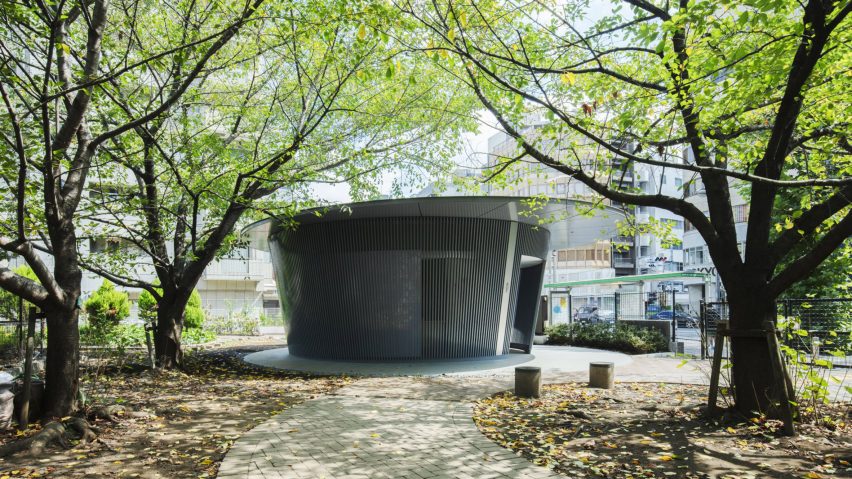Pritzker Prize-winning architect Tadao Ando has completed a circular toilet in a Tokyo park as his contribution to the Tokyo Toilet project.
Built in Jingu-Dori Park, the toilet was created as part of a scheme run by non-profit Nippon Foundation to upgrade public facilities in the city's downtown Shibuya district.
The initiative has already seen by toilets built by Ando's fellow Japanese Pritzker Prize-winners Fumihiko Maki and Shigeru Ban.
Surrounded by cherry trees in a small park around a five-minute walk from Shibuya Station, Ando derived the toilet's shape from his desire to create a structure that enhanced the park.
"I sought for this small architecture to exceed the boundaries of a public toilet to become a 'place' in the urban landscape that provides immense public value," said Ando.
"Using this clear and simple reasoning for the concept of this structure, I chose to utilise a circle floor plan with a spanning roof and engawa [Japanese porch]."
The circular toilet block, which contains a male, female and accessible cubicle along with external sinks, is wrapped in a wall made from vertical metal louvres. This wall creates privacy while letting air circulate.
The whole structure is covered with an angled roof that overhangs the toilet to provide shelter.
"It was vital for me to make a space that was comfortable and safe," said Ando. "Visitors can move inside a cylindrical wall of vertical louvres to feel the comfort of the wind and light from the surrounding environment," he continued.
"A feeling of safety will be emphasised by the free and centripetal circulation which passes through to the other side. This toilet tucked away in the greenery that is Jingu-Dori Park will be known as 'Amayadori'."
Ando's toilet is the sixth to be completed as part of the Nippon Foundation's Tokyo Toilet project. Shigeru Ban's toilet design comprised a pair of transparent blocks, while Fumihiko Maki topped his toilet block with a "cheerful roof".
Nao Tamura based her bright red triangular toilet block on the Japanese craft of Origata and Wonderwall referenced primitive Japanese huts for its design. In total 16 toilets are planned as part of the project.
Photography is by Satoshi Nagare, courtesy of The Nippon Foundation.

